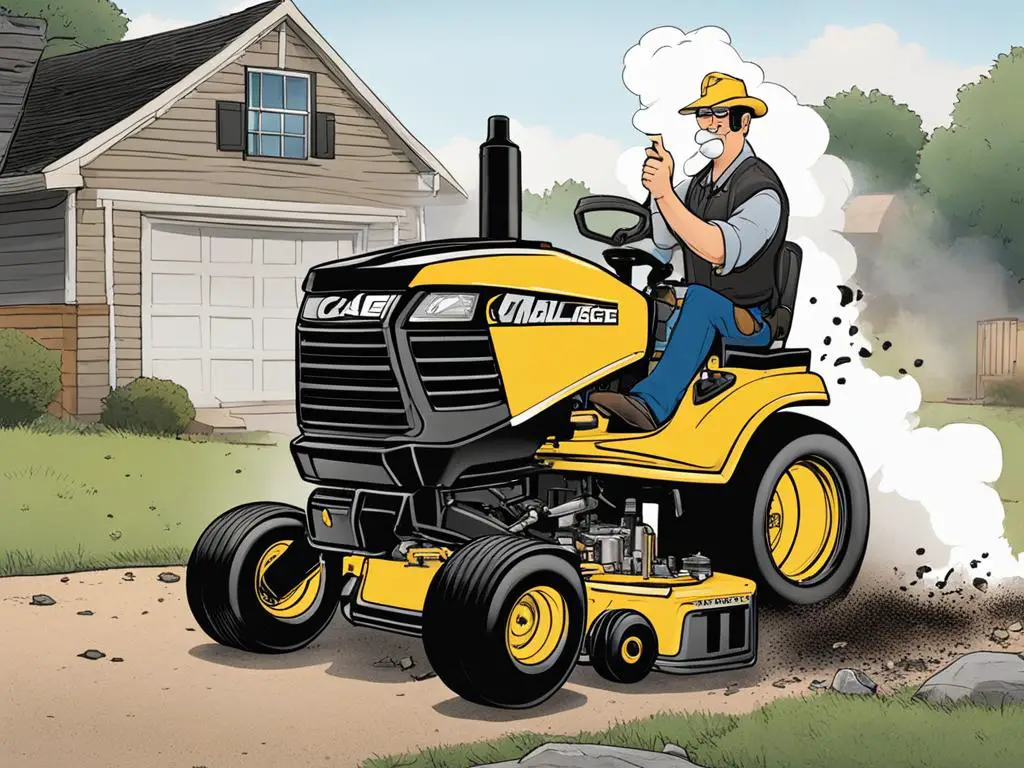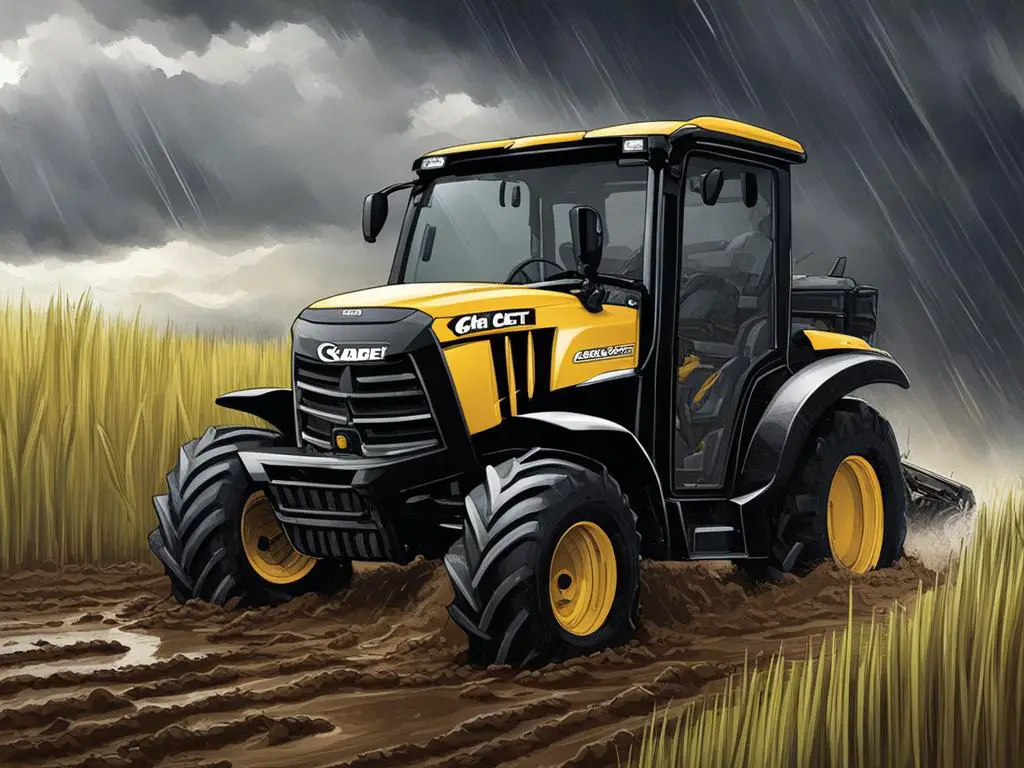The John Deere Z915E is an established zero-turn mower favored by many for its robustness and lawn maintenance efficiency. Like any mechanical equipment, it’s not without its issues. Owners of the Z915E may encounter various problems that can inhibit the mower’s performance and reliability. Addressing these difficulties promptly is crucial to ensuring the longevity and operational efficiency of the mower.
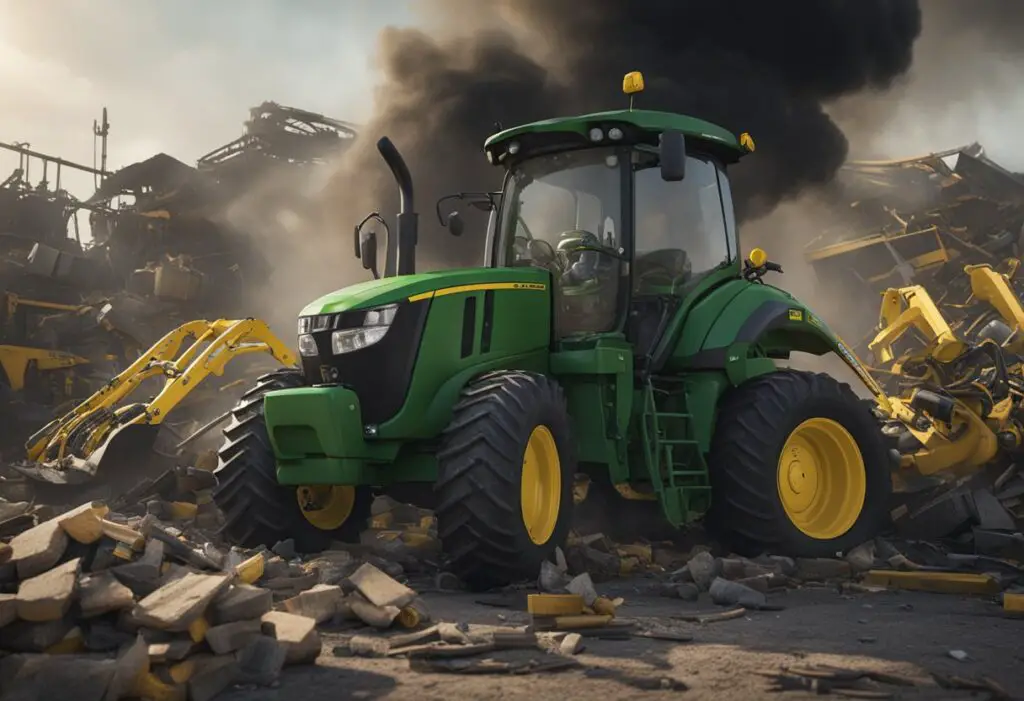
Commonly reported issues with the Z915E range from starting problems to hydraulic pump complications. Engine troubles can manifest as difficulty in starting or inconsistent operation, often demanding a thorough diagnosis. Meanwhile, the hydraulic system, essential for the mower’s smooth maneuverability, may also experience complications that lead to subpar performance or steering difficulties.
Meticulous maintenance and timely troubleshooting are vital in mitigating these issues. Problems can arise due to a multitude of factors including improper fuel use, spark plug malfunctions, and transmission glitches. Each problem has its own set of solutions, ranging from simple adjustments to more complex repairs, underscoring the importance of understanding the mower’s operational dynamics.
Understanding John Deere Z915E Problems
The John Deere Z915E is a robust machine designed for lawn maintenance, yet it’s not without its set of common issues. Identifying these problems and their remedies is crucial for operators to maintain optimal performance and longevity of their mower.
Engine Performance and Common Problems
Engine issues are at the core of most lawn mower complaints, and the Z915E is no exception. Operators often report a loss of power or knocking sounds, which could signal anything from a dirty air filter to worn-out engine components. Regular maintenance tips include checking and replacing air filters and being vigilant about the engine oil levels. Overheating could indicate a clogged cooling system, necessitating a thorough inspection.
Steering and Transmission Challenges
Challenges with steering and transmission are notably frustrating. If the Z915E exhibits steering problems or transmission issues, checking for proper lubrication and wear in the steering components is advisable. Transmission issues might manifest as difficulty in changing gears or erratic mower movement, often implicating the need for professional repairs.
Fuel System and Starting Difficulties
A common complaint involves the fuel system and the difficulty it poses when starting. An engine that experiences a bad start or fails to start might be suffering from a clogged fuel filter or an empty fuel tank. Ensuring the correct fuel mixture and fresh gasoline are crucial steps for troubleshooting. Stale fuel can also lead to starting issues, necessitating a complete fuel system check.
Electrical and Battery Concerns
Electrical problems can stem from a variety of issues, from a drained battery to a malfunctioning spark plug. It is vital to check the battery’s charge and ensure the connections are secure. Problems such as the mower not starting might relate to faults in the electrical system, including the neutral lock being engaged inadvertently.
Mower Deck and Blade Complications
Finally, issues with the mower deck and blades can hinder the Z915E’s performance. A loose or damaged deck belt can result in the cutting deck failing to engage, and dull blades may lead to uneven cutting. Regular inspections and sharpening of blades, alongside checking the deck’s alignment, are integral to maintaining the mower’s effectiveness.
Detailed Maintenance Guidelines
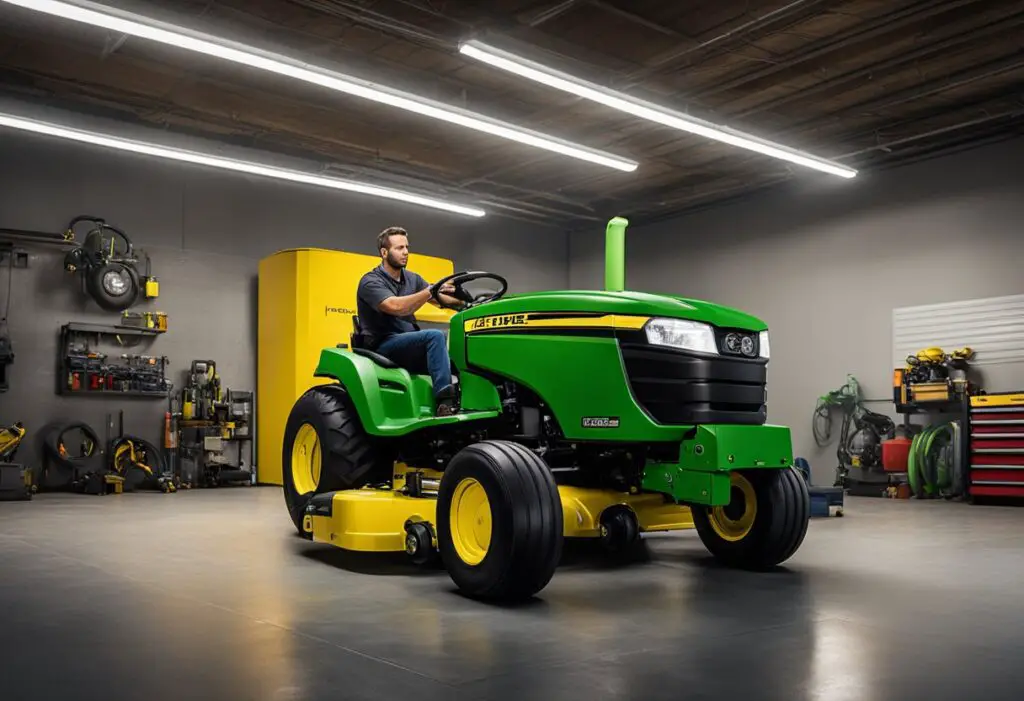
Regular maintenance of the John Deere Z915E plays a crucial role in ensuring longevity and peak performance. This guide outlines specific procedures for filter replacement, tire pressure optimization, hydraulic system upkeep, and general cleaning routines.
Checking and Replacing Filters
Air Filter Maintenance:
- Inspect the air filter every 25 hours of operation. Replace it as needed to prevent clogging, which can lead to loss of power and engine inefficiency.
- A clean air filter ensures an adequate air-fuel mixture and protects against airborne debris entering the engine.
Fuel Filter Considerations:
- Change the fuel filter every 100 hours to maintain clean fuel flow to the engine. Stale or contaminated fuel can cause power issues.
- Always use high-quality fuel and avoid leaving it in the tank for over 30 days to prevent moisture attraction and degradation.
Optimising Tire Pressure and Wheels
Tire Pressure Checks:
- Regularly check tire pressure to maintain even tire pressure, which is essential for balanced operation and even wear. Consult the owner’s manual for the correct PSI.
Wheel Maintenance:
- Inspect wheel bearings and keep them lubricated to prevent wear. Tighten any loose components to maintain mower stability and ensure a smooth ride.
Hydraulic System Care
Hydraulic Fluid and Pump:
- Check hydraulic fluid levels and look for signs of aeration or cavitation that could indicate hydraulic pump issues. Hydraulic pump failure is often due to contamination or low fluid levels.
Preventative Measures:
- Maintain the hydraulic system by cleaning and replacing hydraulic filters as per the manufacturer’s guidelines, typically after every 400 hours of operation.
Cleaning and Maintenance Routines
Routine Cleaning:
- After each use, clean debris from the mower deck, cooling fins, and engine compartment to prevent overheating and preserve the commercial-grade engine’s lifespan.
Carburetor Care:
- Periodically inspect and clean the carburetor to ensure it is free from dirt and operates efficiently. A dirty carburetor can drastically affect engine performance.
Preventative Measures for Long-Term Durability
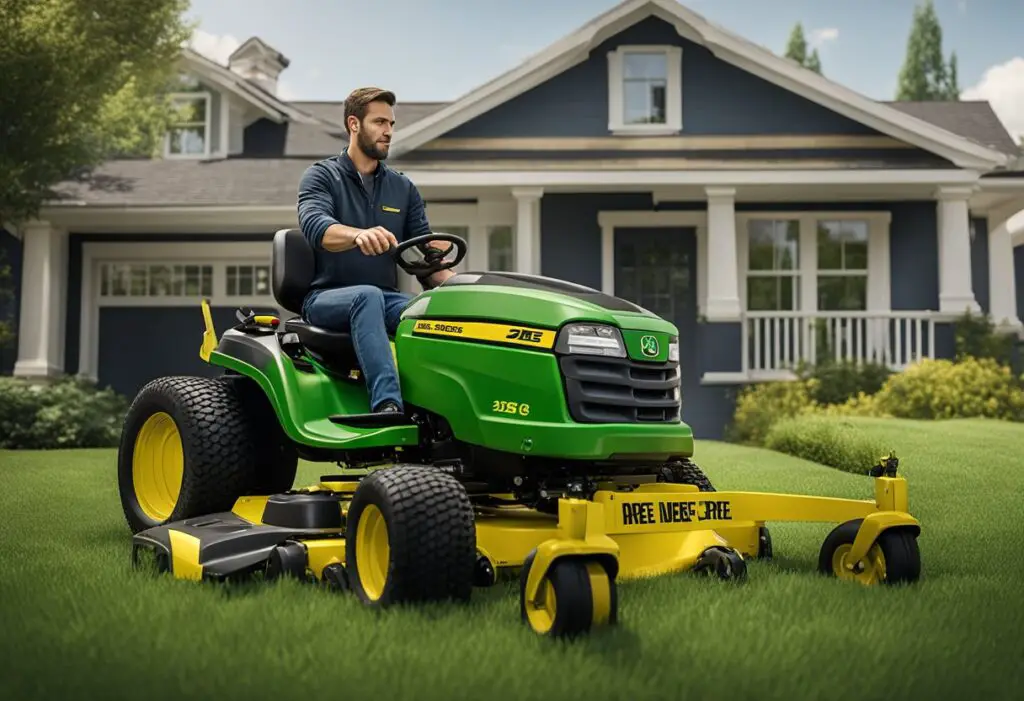
To ensure the long-term durability of the John Deere Z915E, it’s essential to adhere to specific practices, utilize quality components and provide proper storage. Effective maintenance not only safeguards the machine’s operational integrity but also maximizes budget efficiency in the long run.
Adopting Best Practices for Mower Use
Owners of the John Deere Z915E should exercise consistent and proper use of their mower. Engaging the PTO (Power Take-Off) cautiously and avoiding abrupt starts or stops can reduce the risk of belt issues. Additionally, maintaining the 11.5-gallon fuel tank free from a mixture of water and air prevents complications related to air in the fuel system. Regularly checking the mower for carbon buildup and faulty spark plugs can forestall engine problems before they escalate.
Investing in Quality Parts and Fuel
Utilizing premium parts and fuel can greatly extend the lifespan of the mower’s Kawasaki engine and hydrostatic transmission system. Operators should invest in quality replacement parts, such as durable belts and filters, to reduce the likelihood of premature wear. Employing the correct fuel grade minimizes the chance of engine-related issues, safeguarding the mower’s performance and efficiency.
Ensuring Proper Storage and Handling
Proper storage of the John Deere Z915E includes keeping it in a clean, dry space to prevent moisture accumulation, which can lead to rust or a mixture of water and air in the system. Before storing the mower, one should ensure that the fuel system is properly treated and that all components, including the deluxe comfort seat, are secure and undamaged. Handling the mower with care, especially when transporting it, prevents unnecessary stress on components, ensuring a consistently dependable performance.
By focusing on these preventative measures, the longevity and reliability of the John Deere Z915E can be significantly enhanced.
Frequently Asked Questions
In addressing common issues and their resolutions, this FAQ section offers practical insights for owners of the John Deere Z915E zero-turn mower.
What are some common issues with the John Deere Z915E zero-turn mower?
The John Deere Z915E is known to experience issues that include difficult starting, engine problems, hydraulic pump complications, steering challenges, and uneven cutting performance.
How do you troubleshoot starting problems on a John Deere Z915E?
To troubleshoot starting issues, check for sufficient fuel levels, inspect spark plugs and connections, ensure the correct fuel grade is used, and verify that there are no obstructions in the fuel system or air in the lines.
What steps should be taken for the maintenance of a John Deere Z915E to avoid operational problems?
Regular maintenance should include checking engine oil levels, cleaning or replacing air filters, inspecting the mower blades and belts, and ensuring the hydraulic system is free from leaks and at the proper fluid level.
Is there a common fix for electrical issues on the John Deere Z915E model?
Electrical problems often relate to battery connection issues or blown fuses. A common fix is to check and secure battery connections and replace any defective fuses.
Which engine model is equipped in the John Deere Z915E, and are there known engine-specific problems?
The John Deere Z915E typically comes with a Kohler engine, which is robust but can sometimes develop issues like starting difficulties or irregular running if routine maintenance is not observed.
Have any recalls been issued for the John Deere Z915E that could affect its performance?
As of the knowledge cutoff date in early 2023, there were no specific recalls for the John Deere Z915E affecting its performance. Users should stay informed through official channels for any future updates.

